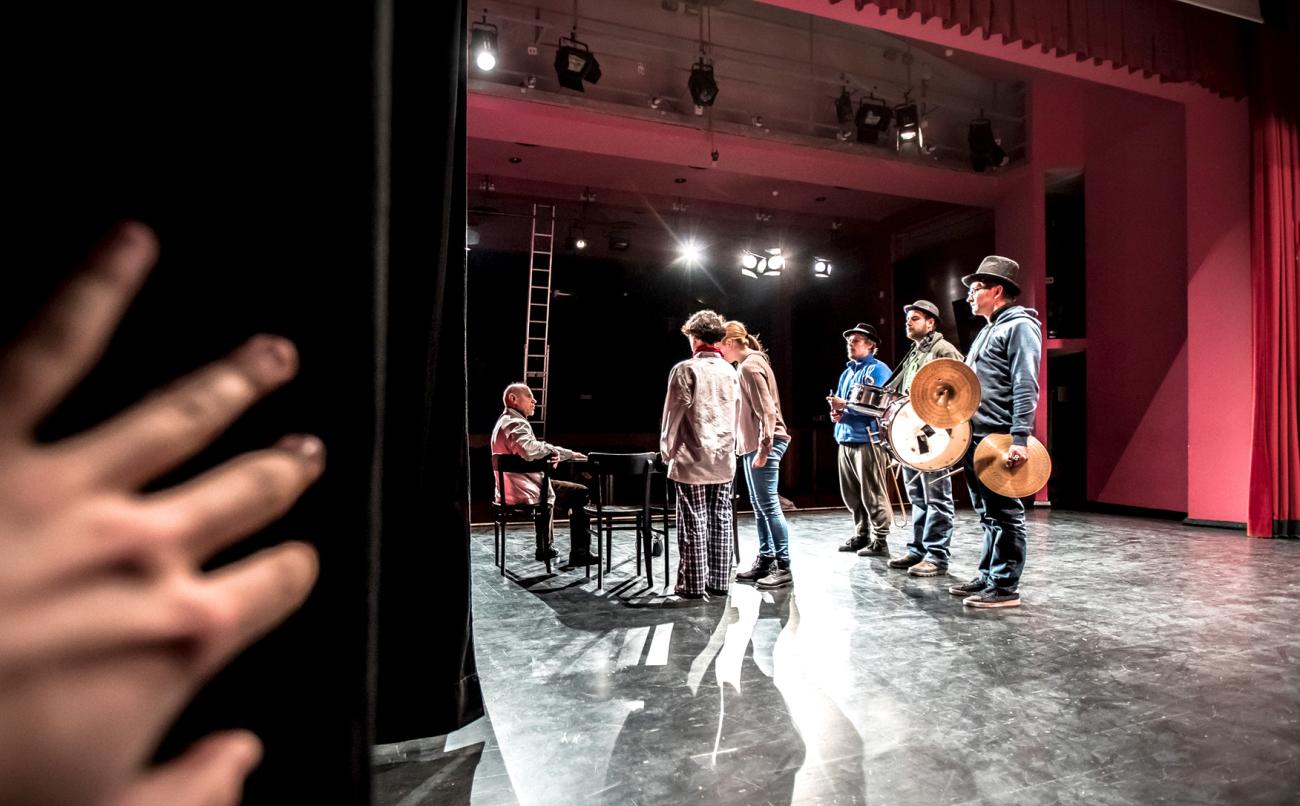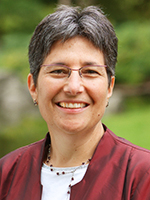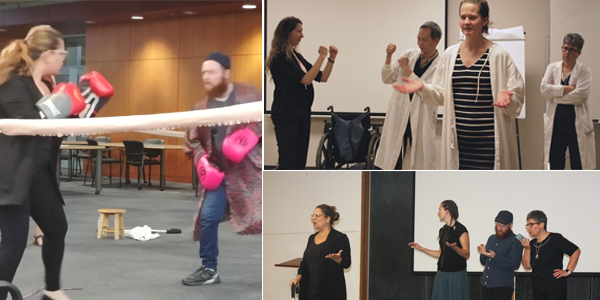
Research-based theatre had a significant impact on the attitudes and beliefs of health care professionals and students towards peers living with disabilities.
From William Shakespeare to Samuel Beckett, the theatre has often been a space to explore and question cultural identities and beliefs. In her study, Vancouver Coastal Health Research Institute researcher Dr. Tal Jarus assessed how a research-based theatrical performance about health care practitioners living with a disability impacted audience members’ perceptions.
Research-based theatre draws from both theatre and research to create social change.
“Many health practitioners, educators and students who live with disabilities face barriers and stigma,” states Jarus. “This continues despite efforts to promote equity, diversity and inclusion in the workplace, and is often perpetuated by peers.”
“Disability is here defined as people living with diagnosed or self-perceived bodily, mental or sensory differences, impairment or dysfunction, which simply reflect the range and diversity of human ability.”
For her recent study, published in Nurse Education Today, Jarus was part of the team who wrote the 30-minute play, Alone in the Ring, also performing in it alongside two other health professionals and one PhD student. Three of the participants also live with or have lived experience with one or more disability. The play was developed in collaboration with the UBC RbT lab.
The play uses the analogy of a boxing ring to relay the adversity faced by health care professionals, educators and students living with a disability.
“There is something about theatre that enables us to empathize with the characters. We are drawn into the story, seeing people’s reactions and emotions.”
Alone in the Ring was presented to 174 study participants, who were either students, faculty, staff or clinicians in the health or human service professions in Canada. All participants completed a survey before and after watching the play, and participated in a 20-minute, post-play discussion with the research team and actors. Twenty participants also participated in follow-up interviews.

“We found that the pre- and post-knowledge and attitudes of participants changed significantly,” says Jarus. “We did not expect to see such a significant change in attitude within an hour and after engaging with what is a very complex topic in the health profession.”
In the survey, participants were asked how comfortable they felt about certain scenarios that could take place in a health care environment. This included a counsellor with vision impairment meeting with a new client, a medical student with post-traumatic stress disorder meeting their new clinical supervisor and a physiotherapist with a cane meeting their hiring interviewer.

After watching the play, participant responses indicated that they felt significantly more comfortable interacting with students or practitioners living with disabilities, particularly with respect to the visually-impaired counsellor and the physiotherapist with a cane scenarios.
The research team also identified two themes from the surveys and follow-up interviews that highlighted how participants gained new perspectives and experienced a change in their attitudes and knowledge.
Ending stigma to support people living with disability in health care
Jarus notes that, while some estimates place the number of health practitioners, educators and students living with a disability at around 3.1 per cent among practicing physicians and around 4.6 per cent among medical students, this figure is likely an underestimation. Many disabilities are invisible, such as anxiety and depression, making them harder to track unless individuals self-identify. And due to systemic ableism, or favouritism of able-bodied people, many choose not to disclose.
Often faced with a lack of accommodations and an underestimation of their qualifications and abilities, many people living with disability in health care find the doors to career advancement, recognition and reward closed, explains Jarus.
“It is the role of each and every one of us to make change in the health sector in order to make it more equitable and inclusive for people living with disabilities.”
The findings of Jarus’s study add to a growing body of literature on the medium of theatre as a means to support positive attitudinal change among audience members, including members of the medical profession.
As one female participant noted: “I had this really deep gut response of, yeah on the surface I know I’d be okay with that, but I think deep down it was also challenging maybe that I also have some internalized ableist beliefs about certain professions and certain ability.”
Another participant said: “The play made me reflect on how many people are in my program or in my workplaces that might have invisible disabilities and I haven’t acknowledged or talked about it, and how many of us are hiding things which maybe don't need to be hidden. But then, from the examples in the play, sometimes workplaces aren’t kind to people who expose their disability and they are seen as incompetent.”
These reactions point to how the medium of theatre can be an important conversation starter, “but should not stand alone,” says Jarus. “Research-based plays should be followed by a discussion with the audience, as well as other conversations with decision-makers and policymakers that will lead to changes to policies and procedures.”


